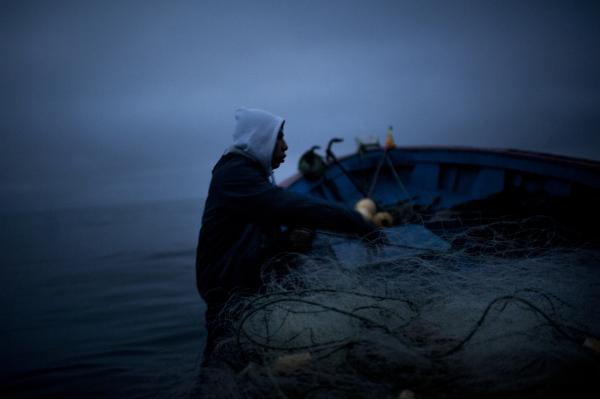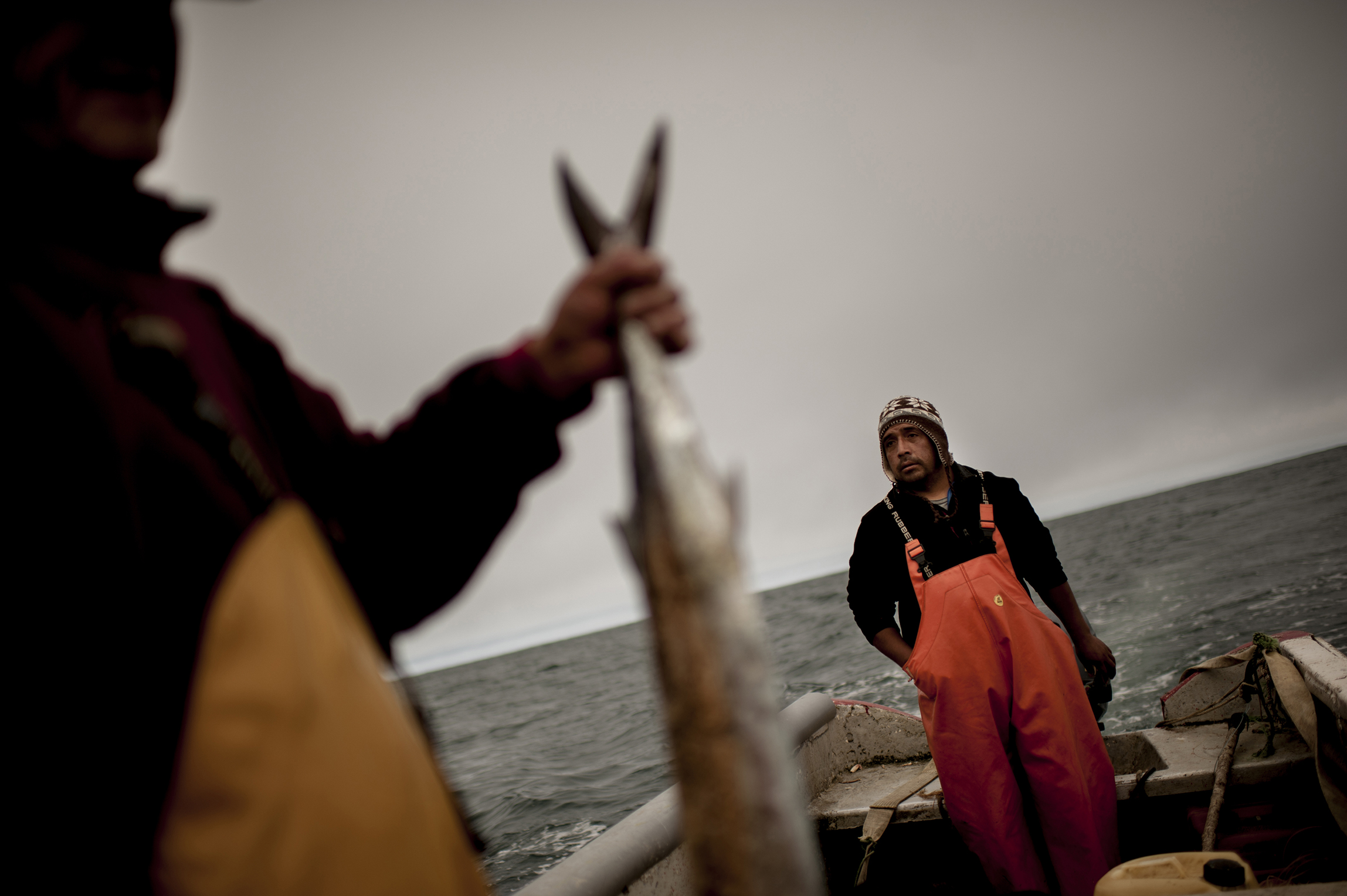
In Chile, the line between artisan and industry fisherman is blurred, especially among the largest of the artisan boats.
When the boats measure 60 feet or more in length, they are referred to as semi-industrial because they require a 10-man crew to operate and can haul more than 70 tons of fish.
The captains and crews of these boats share a contentious ancestry with the industrial sector. Large scale fishing emerged from modest beginnings as captains expanded their fleets and operations. Over time, the industry managed to acquire what was reserved for smaller boats by providing financing to artisans and demanding payment in fish stock.
For years animosity bubbled near the surface. So, it comes as little surprise that the most vocal opposition to new fisheries, which largely favored four conglomerates owned by seven influential families, originated among this class of artisan fishermen.
This partnership continues to blur the lines between industry and artisan. Further muddying the distinction, many boats are owned by men who are artisan in name only, leaving the dirty work to men like Nelson Estrada.
"You can't be a fisherman from behind a desk," Estrada said from his home in Talcahuano, a port city on Chile's central coast.
In 2011, with industry and artisan boat owners and crewmen at an impasse, then Minister of Economy and current presidential hopeful Pablo Longueira brought the various unions together with companies to try to settle longstanding disputes.
But instead of finding common ground, negotiations exposed yet another divide among artisan fishermen.
Amid talks, Estrada, president of a crewmen's union, walked away from the table, severing relations with CONAPACH, Chile's largest artisanal fishing association, and taking thousands of its members with him in the process.
Estrada says he told Longueira that he refused to play supplicant to the industry for "how much fish it was willing to give artisans."
For its part, CONAPACH signed an agreement to cooperate with the industrial sector rather than "get steamrolled," said CONAPACH President Zoila Bustamante.
As debate over the fisheries law — dubbed the Longueira Law — raged through 2012, artisanal opposition solidified behind a media campaign, funded by Lota Protein, a Norwegian-owned company. Lota Protein lobbied for a shift from a quota system (based on historical catch that favored established operations) to auctions that would allow smaller companies, such as Lota, to gain market share.
Accusations that Lota was using Estrada as a proxy to carry out its agenda were met with counterattacks that CONAPACH had willingly sold the artisan sphere to the highest bidder.
Shortly after the fisheries law passed in December 2012, a group of senators filed a lawsuit challenging the law, claiming the government failed to properly consult with indigenous communities. But a constitutional court brushed aside the appeal, allowing the law to take effect in February.
The fractured artisan fishing villages share a common goal––protecting their livelihood––and, despite the rancor, modest gains were achieved.
Estrada sees himself as a populist, fighting for the rights of crewmen against the influence of industrial companies and abusive boat owners.
He helped form CONDEPP, or National Council for the Defense of Artisan Fish, and became its outspoken president.
Over the past few weeks, the opposition has gained renewed momentum following the revelation that Marta Isasi, a deputy in the national parliament, received a $50,000 payment from fishing giant Corpesca SA ahead of the vote on the fisheries law last December.
Corpesca acknowledged its payment to Isasi, pulling the curtain back on a practice that Chileans have long known existed, but have rarely had the opportunity to glimpse in such detail.
Amid the escalating Isasi scandal, described by Estrada as "the tip of the iceberg," outraged artisan fishermen are demanding that Congress annul the fisheries law, taking their cause to the streets and joining a tide of social unrest in the conservative South American nation. Still, the government of President Sebastián Piñera has sidestepped criticism of the fishing law as it has done with all social critics––by drawing attention to robust economic growth of more than 5 percent per year since 2008.
When he isn't directly confronting the industry, Estrada said, he is waging a battle against boat owners who pass their debt to the industry onto crewmen.
"The fishermen continue being slaves of cheap labor," Estrada said.





